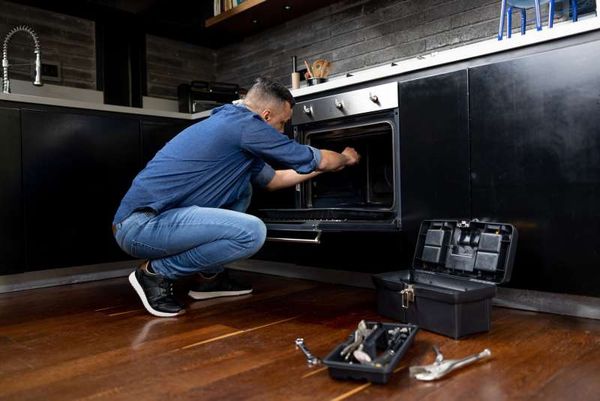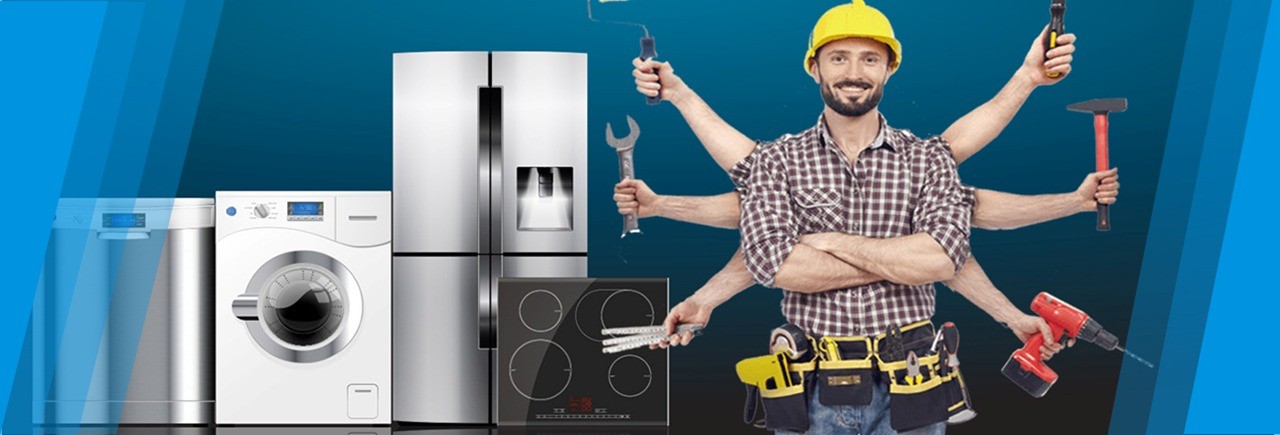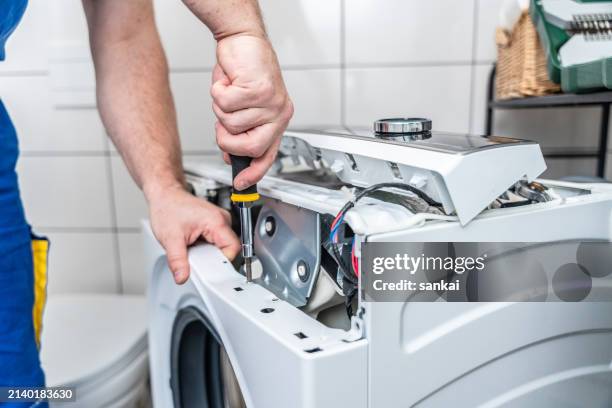Weird Washer Sounds Explained – Dependable Refrigeration & Appliance Repair Service Washer repair near me
Weird Washer Sounds Explained – Dependable Refrigeration & Appliance Repair Service Washer repair near me
Blog Article
The Ultimate Overview to Comprehending Appliance Repair Work in your home
When your refrigerator stops cooling down or your oven refuses to heat, it can feel frustrating. Comprehending device repair service in the house can conserve you money and time. You'll learn to recognize signs, use important tools, and comply with a methodical troubleshooting procedure. Before you begin, there are vital safety preventative measures you require to take into account. What are one of the most usual problems, and exactly how can you fix them? Let's check out the fundamentals.
Common Appliance Troubles and Their Signs
When your devices start acting up, it's necessary to recognize the indications at an early stage. Overlooking them can lead to larger issues and pricey fixings. As an example, if your refrigerator isn't cooling appropriately, you may discover warm areas or condensation creating. This might suggest a stopping working compressor or a blocked vent.Your dishwashing machine may show troubles with dirty dishes or uncommon noises during cycles. If you hear grinding or clanking, it's time to investigate.A cleaning equipment that will not rotate or drain pipes can leave you with soggy washing, suggesting a clogged up drainpipe or a malfunctioning pump.Lastly, if your stove's temperature appears off or it takes forever to preheat, you could be managing a malfunctioning thermostat. By staying alert to these symptoms, you can resolve issues prior to they rise into significant repair work.
Essential Tools for Appliance Fixing
When you're dealing with home appliance fixings in the house, having the right devices is necessary. Standard hand tools like screwdrivers and pliers will help you disassemble and repair numerous home appliances, while electrical testing tools ensure you're working safely with wiring. Let's discuss what you need to begin on your fixing trip.
Fundamental Hand Tools
Having the right tools is necessary for efficient home appliance fixing in your home. Start with a reputable screwdriver set, including both flathead and Phillips types, as screws are usual in home appliance setting up. Pliers are likewise essential; they aid with gripping, twisting, and cutting wires or tiny elements. A pair of needle-nose pliers can get to tight places conveniently. You'll require a good flexible wrench for tightening up or loosening up nuts and bolts. An energy blade is useful for puncturing packaging or insulation. Do not neglect a strong workbench or surface to safely arrange your devices and components. With these basic hand tools, you'll be well-prepared to tackle most home appliance fixings that come your way.
Electrical Screening Instruments
Together with standard hand tools, electric testing tools play a necessary function in device repair service. These tools assist you diagnose electric issues and warranty devices function securely. A multimeter is vital; it gauges voltage, current, and resistance, permitting you to identify troubles quickly. A non-contact voltage tester is an additional essential, letting you identify real-time cords without making straight call, enhancing your safety. Clamp meters are great for measuring current flow in cables without detaching them, conserving you time and effort. Furthermore, circuit testers can swiftly examine if electrical outlets are operating properly. By utilizing these gadgets, you'll enhance your troubleshooting process and improve your repair service skills, making device maintenance a great deal less complicated.
Step-by-Step Overview to Diagnosing Appliance Issues
When your home appliance acts up, it can be discouraging, yet diagnosing the problem doesn't have to be overwhelming. You'll discover to determine common problems and apply efficient fixing methods. Allow's walk via the actions to get your appliance back in working order.
Usual Device Problems

Repairing Methods Clarified

Repairing Major Kitchen Area Appliances: A Closer Look
Have you ever wondered exactly how to tackle common issues with your kitchen devices? Repairing significant kitchen home appliances like refrigerators, ovens, and dishwashers can be simpler than you believe. Start by determining the issue-- whether it's a fridge not cooling down or an oven that will not heat. Typically, a straightforward reset or checking the source of power can solve the issue.For refrigerators, clean the condenser coils and check the door seals. If your oven's not home heating, inspect the home heating component and thermostat. Dishwashing machines may just need a tidy filter or a reset to get them back in action. Constantly unplug the device prior to diving into repairs to assure your safety.Don' t neglect to seek advice from the individual manual for certain troubleshooting suggestions associated to your design. With a little bit of perseverance and the right devices, you can with confidence tackle home appliance repairs and save money at the same time!

Fixing Washing Equipments: Tips and Techniques
When your laundry home appliances begin breaking down, it can feel frustrating, but fixing them does not have to be a hassle. Begin by inspecting the power supply. Validate the device is plugged in and the outlet is working. Next off, check the door or cover button; a damaged switch can protect against the device from operating.For washers, if it's not spinning, inspect for out of balance loads. Rearranging the clothing may fix the problem. If your clothes dryer isn't home heating, clean the lint filter and inspect the air vent for blockages.Listen for unusual noises; they can indicate an issue. If your appliance is leaking, examine the hoses for splits or loosened connections. File any mistake codes presented on electronic displays, as they can lead you in recognizing the concern. Consult the customer handbook for certain repairing tips related to your model.
Safety Preventative Measures to Take During Fixes
Before you begin any type of appliance repairs, it's necessary to prioritize safety to stop mishaps or injuries. First, disconnect the device or switch off the circuit breaker to ensure no power reaches it while you work. Use insulated tools to decrease the threat of electric shock. Put on security goggles and gloves to safeguard yourself from sharp sides or debris (Dependable Refrigeration & Appliance Repair Service Washer repair near me).Make certain your office is neat and well-lit, so you can see what you're doing. Keep youngsters and animals far from the location to stay clear of interruptions and possible hazards. If you're taking care of gas devices, be additional careful; check for leakages before proceeding.Take your time, and do not hurry through repair services. If you feel unclear about any type of action, it's much better to stop and study than navigate to this site to think. Complying with these precautions will certainly help produce a much safer atmosphere for your DIY home appliance repair work job
When to Call a Specialist for Assistance
Exactly how do you understand if it's time to contact a professional for home appliance fixings? If you've attempted basic troubleshooting without success, it's a clear indication. As an example, if your device still will not begin or shows unusual noises after resetting it, do not be reluctant to seek professional help.When you observe leakages, smoke, or burning scents, focus on safety and security and call a professional instantly. These concerns can lead to even more substantial damages or posture threats to your home.Also, if you can try this out your appliance is under warranty, getting in touch with a professional is commonly the very best route. They can assure that fixings will not nullify your guarantee, saving you money in the long run.Finally, if you're unclear or unpleasant with complex repair work, it's smart to leave it to the professionals. Remember, dealing with complicated issues without the ideal know-how can result in costly mistakes. Trust a specialist when doubtful!
Frequently Asked Inquiries
Just How Can I Prevent Device Troubles in the Future?
To stop appliance issues in the future, you should perform regular upkeep, look for damage, clean filters, and prevent overloading. Staying positive will aid extend their life-span and maintain them running efficiently.
What Are one of the most Usual DIY Device Repair Work Mistakes?
You may forget security preventative measures, skip repairing actions, or use inaccurate devices when attempting do it yourself home appliance repair work. Hurrying the procedure or disregarding supplier guidelines can lead to more considerable concerns and costly blunders. Stay individual and informed!
How Do I Know if a Component Requirements Replacement?
You can tell if a part requires substitute by inspecting for uncommon sounds, leaks, or inconsistent efficiency. If the device has a hard time to run appropriately or shows noticeable damage, it's likely time for a substitute.
Can I Make Use Of Generic Components for Device Repair Works?
Yes, you can utilize common components for appliance repair services, but ascertain they're compatible - Lg Dryer my blog repair near me Dependable Refrigeration & Appliance Repair Service. Generic parts might conserve you money, but they could influence performance or long life, so evaluate your options very carefully before choosing
What Guarantees Cover Home Appliance Repair Works?
Many appliance warranties cover repair work for manufacturing defects, yet they often leave out damage from misuse. Examine your service warranty terms carefully, as some might call for making use of certified technicians and original components for insurance coverage to stay valid.
Report this page